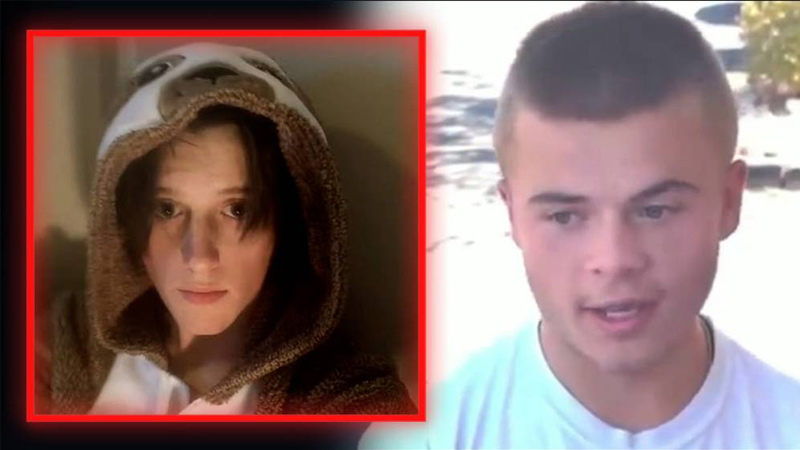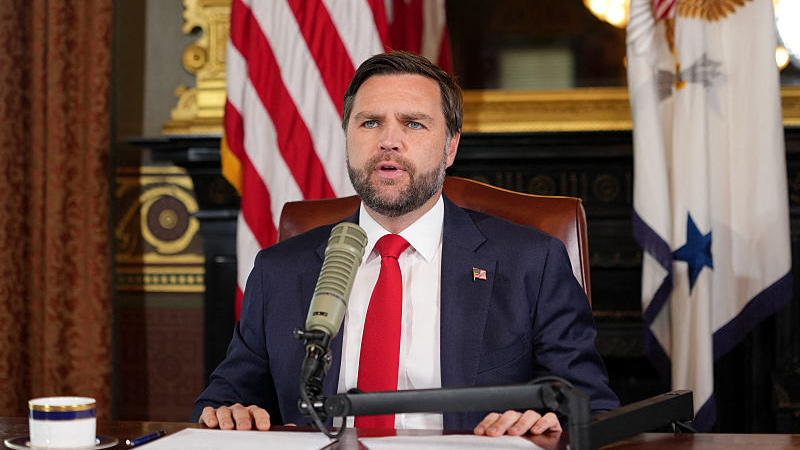
Daniel Shepherd, who developed pericarditis after his employer required him to take Pfizer’s COVID-19 booster, took his case to an employment tribunal, which ordered Shepherd’s employer to pay worker’s compensation benefits and reimburse him for medical expenses.
An Australian man who was injured after being forced to take the COVID-19 vaccine to keep his job will receive worker’s compensation benefits and medical expense reimbursement, a South Australian Employment Tribunal ruled on Jan. 15.
Daniel Shepherd, a 44-year-old father, was employed as a youth worker at Baptist Care South Australia in 2021 when he took two doses of a COVID-19 vaccine, to comply with his employer’s mandate, according to Daily Mail.
Both jabs made him feel unwell but did not cause severe or debilitating symptoms.
Later the same year, Shepherd took a new job with the Department for Child Protection. In January 2022, his new employer required him to get a COVID-19 booster shot to keep his job.
On Feb. 25, 2022, a day after he was given the Pfizer mRNA booster, Shepherd developed severe chest pains.
The symptoms worsened until March 11, 2022, when fearing he was suffering a heart attack, he was rushed to a hospital where he was diagnosed with post-vaccine pericarditis.
“It felt like someone had their knee right in my chest,” Shepherd told 9News.
A potentially life-threatening condition, pericarditis is characterized by inflammation of the pericardium, the sac-like membrane surrounding the heart.
Shepherd’s injury was severe enough to limit him to a few months of part-time administrative work. His symptoms persist to this day.
“Even today with just mild exertion [I get] chest pains and then it’s followed by fatigue, like severe fatigue,” he said.
During the legal proceedings, representatives of the Department for Child Protection acknowledged the injury was caused by the mRNA vaccine, but argued that because the mandate was a legal government directive, it was excluded from worker’s compensation liability under the South Australia Emergency Management Act.
But Judge Mark Calligeros, deputy president of the South Australia Employment Tribunal, disagreed. “It would be astonishing if parliament intended that an employee of the state, injured adhering to an EM (Emergency Management) Act direction, was to be precluded from receiving workers compensation.”
“I am not satisfied that parliament intended to deny compensation to employees of the state injured by heeding a vaccination mandate designed to protect the health and welfare of citizens,” he said in the ruling.
Calligeros said it would be “ironic and unjust” for the state to deny Shepherd financial and medical support when he was only “complying with the state’s desire to preserve public health.”
The judge ordered that Shepherd receive weekly income support payments and reimbursement of medical expenses. Under Australian law, that means the Department for Child Protection is liable for the costs.
Many still ‘struggling to get compensated’
Sydney human rights lawyer Peter Fam told journalist Rebekah Barnett the ruling was “a good decision” and an important precedent for holding employers accountable for injuries sustained as a result of workplace COVID-19 vaccine mandates.
Under Australian worker’s compensation law, an employer is liable only if the workplace is “a significant contributing cause of the injury” and taking the vaccine must be “sufficiently related to his work and his employment,” Fam said.
Shepherd’s case was more unambiguous than many others seeking similar redress, Dr. Rado Faletic told Barnett, because two cardiologists were willing to confirm Shepherd’s injury was caused by the vaccine.
Fam agreed, saying that compensation for less common diagnoses would be challenging “because there’s still a lot of fear with doctors and medical professionals in admitting causation.”
Faletic, a vaccine-injured scientist and the co-founder and director of COVERSE, an Australian COVID-19 vaccine injury support charity, said he was encouraged by the ruling. However, he added, “When it comes to people with unacknowledged diagnoses or unclear diagnoses, this is where people are struggling to get compensated.”
Lamenting the plight of many Australians who have been fighting in the courts, Faletic said they often receive “paltry compensation offers” that fail to cover their legal costs or employment losses.
The strategy of seeking justice through the worker’s compensation program is “the only remaining recourse,” Faletic said. But the program’s requirements are “way too narrow,” paying less than 5% of the more than 3,000 claims submitted in its first 18 months.
Barnett, author of the Substack “Dystopian Down Under,” told The Defender the Shepherd ruling was a landmark win.
“When it comes to COVID vaccine mandate cases, the ruling rarely goes in the employee’s favor,” she said.
Barnett pointed to an article by “Dr. Ah Kahn Syed” (pseudonym) on “Arkmedic’s blog” Substack criticizing Australia’s Fair Work Commission as “captured” and “a tool of the state.”
Syed cited examples of nepotism, favoritism, bullying, denial of Freedom of Information Act requests, coercion of employees, lack of independence and other evidence supporting his claims of the commission’s “unfair” practices.
“What is happening in the ‘post-pandemic’ society is entirely enabled by the ‘greater good’ concept,” Syed wrote, “where your bodily autonomy is irrelevant whilst ‘the needs of society’ are more important.”
Barnett shared the example of the five Sydney Trains employees, who were initially awarded back pay by the Fair Work Commission after being wrongly told to stand down for 10 months for failing to comply with their employer’s COVID-19 vaccination policy.
“Sydney Trains appealed, and the decision was overturned,” she said.
On the positive side, New South Wales (NSW) teacher Diane Dawking won her case for psychological injury related tothe NSW Department of Education’s rollout of the vaccine mandate, Barnett said.
But most other vaccine-injured Australians are not so lucky, Barnett said. “Anecdotally, most don’t have the resources or energy to fight it out in the courts, so they either accept lowball offers or just give up,” she said.
Class action suits underway
With the difficulties getting reparation from the courts and Fair Work Commission, some Australians are turning to class action suits, according to Barnett.
One such suit was filed in the Federal Court of Australia in April 2023 by Dr. Melissa McCann against the Therapeutic Goods Administration (roughly equivalent to the U.S. Food and Drug Administration) for “negligence and misfeasance in public office” in its failure to properly approve and monitor the COVID-19 vaccines, resulting in harms to Australians. The class action suit is still taking on members.
Barnett told The Defender:
“Even though there have been over 1,000 deaths and almost 140,000 adverse events reported to the Therapeutic Goods Administration (TGA) in relation to the COVID vaccines, the TGA maintains that adverse events are rare, that reports are not necessarily causally linked, and that only 14 Australians have died as a result of vaccination.
“Yet, the TGA has also admitted that it does not assess all adverse event reports to determine causality, so how can it know the extent of COVID vaccine harm in Australia? It can’t, and it doesn’t.”
Another COVID-19 class action lawsuit currently in development targets Pfizer and Moderna directly, and will attempt to show their products meet the Australian definition of genetically modified organisms, for which the plaintiffs allege the companies failed to apply for the proper licenses.
It’s becoming “less taboo” for Australians to discuss stories about vaccine injuries, Barnett said, citing as evidence the mainstream media’s coverage of the Shepherd story, which was also picked up by MSN Australia. Canberra Daily even ran Barnett’s Substack article.
“That said, I notice that unless people have experienced Covid vaccine injury — either themselves, or in their family or close network — they remain fairly unconcerned by it and believe injuries and deaths to be exceedingly rare,” she said.
Alex Jones: We’ve Moved Beyond The Crossroads, It’s Time To Choose A Side




